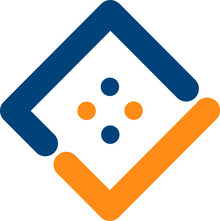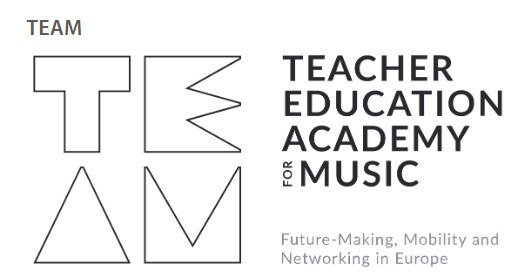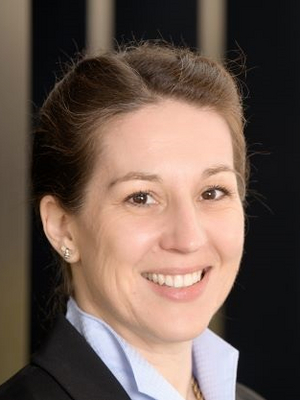Brotkrümelnavigation:
Main content:
Erasmus+ und INTERREG Projects
CAREER LEAD

CAREER LEAD is a European research network focussing on career guidance in general and vocational schools. Founded in 2024 and funded by the EU Erasmus+ project (grant number 2023-1-DE01-KA220-HED-000161202), the network aims to promote the exchange and collaboration of researchers and build a sustainable network on career guidance in Europe.
Aims of the network:
- To establish a long-term network on career guidance, particularly in the EU, and to recruit further members.
- Comparison of differences and similarities in career guidance practice in the participating countries.
- Development of research concepts to improve career guidance in European and international education systems.
- Promotion of young researchers and teachers.
- Knowledge transfer in science and practice.
The network closes a gap in the European research landscape and supports the economic and social development of the member states through improved careers guidance in the context of the European labour market. At the same time, it aims to make research results more visible internationally through targeted co-operation and to contribute to practical application.
Core activities:
- Supporting joint research projects in working groups (topics: digitalisation, inclusion/diversity, sustainable development).
- Exchange between members and dissemination of new research results via online conferences and peer-reviewed conference reports.
- Promotion of young researchers through lecture series and joint supervision of doctoral theses.
- Practice-orientated knowledge transfer, in particular through online conferences and their documentation for participants from schools and educational administration.
Project management: Germany, Institute for Economic Education - Prof. Dr Rudolf Schröder
Contact person at PH NÖ: Prof. Dr Sabine Zenz
Project partner:
- Institut für Ökonomische Bildung (Germany)
- Westfällische Universität Münster (Germany)
- Hochschule der Bundesagentur für Arbeit (Germany)
- Pädagogische Hochschule Niederösterreich (Austria)
- Uniwersytet Jagiellonski in Krakow (Poland)
- Uniwersytet Adama Mickiewicza Poznaniu (Poland)
- Universidad de Sevilla (Spain)
Projekt-ID: 2023-1-DE01-KA220-HED-000161202
Programm: Erasmus+; Key Action 2 Cooperation partnerships in higher education (KA220-HED)
Participating countries: Germany, Austria, Poland, Spain
Project start: 01/09/2023
Project end: 31/08/2025

The TEAM project (Teacher Education Academy for Music. Future-Making, Mobility and Networking in Europe) is an initiative to improve music education and the training and further education of music teachers in Europe. It is funded by the European Union as part of the Erasmus+ Teacher Academies programme with 1.5 million euros and runs from June 2023 to May 2026. The project is coordinated by the University of Potsdam and includes 15 partner institutions from 11 European countries as well as numerous associated partners from other countries and music-related European NGOs. The project works closely with the European Association for Music in School (EAS).
The project takes a broad and innovative approach to address the current challenges and opportunities of music as a subject in Europe and to create a dynamic for change. It will therefore promote a long-term network for music education in Europe and strengthen the role of music as an integrative and creative factor in education.
Project management: | University of Potsdam, Germany, Prof Dr Isolde Malmberg |
Project partners: | University of Education Lower Austria, MDW (Vienna), LUCA School of Arts (Brussels), University of Nicosia, FrM Hochschule für Musik Freiburg, University of Athens, TUD Technological University Dublin, LMTA LIETUVOS MUZIKOS IR TEATRO AKADEMIJA (Lithuania), ISL International School of Luxembourg, NUL NORD University Levanger, MAM Malmö Academy of Music, AML Department of Music Pedagogy (Ljubljana). |
Contact person: | |
Planned output:
Development of evidence-based, forward-looking and open educational resources (OERs) for music education, taking into account topics such as sustainability, democratisation and digitalisation.
Strengthening mobility for the training of music teachers, in particular through high-quality school internships abroad with intercultural mentoring.
Creating mappings of music education and music teacher education in Europe to capture the current status and needs and facilitate further cooperation.
Formulate TEAM Learning Outcomes that summarise the knowledge from all project activities and translate it into a curricular policy paper to advocate for high quality music education and music teacher education in European countries.
Projekt-ID: | 101103634 |
Programm: | ERASMUS-EDU-2022-PEX-TEACH-ACA |
Target group: | Teachers, students and pupils at primary and secondary level 1 |
Beneficiaries: | Teachers, students and pupils at primary and secondary level 1 |
Participating countries: | Germany, Austria, Lithuania, Greece, Ireland, Norway, Sweden, Luxembourg, Belgium, Slovenia, Cyprus. |
Project start: | 15.6.2023 |
Project end: | 31.8.2026 |
CNL
CultureNature Literacy (CNL)
The CNL project aims to provide teachers, school leaders, educators and researchers in teacher education, training and professional development with teaching/learning materials that promote cultural sustainability. The CNL concept aims to define Anthropocene competence that enables people to face the uncertainties of climate change in the 'human age' in a fact-based and solution-oriented manner. STEM knowledge is innovatively combined with cultural education and its creative potential.
The CNL project brings together the expertise of the 9 European project partners to formulate cultural sustainability as an inclusive educational concept for social transformation in the sense of SDG 4 (Quality Education): the “CultureNature Literacy” (CNL) concept. Next-practice examples and text-image narratives on the human-nature relationship are developed for use in interdisciplinary teaching and blended learning. Cultural practices are essential for successful science communication in the Anthropocene.
The following results are the result of joint collaboration between the project partners: The CNL handbook (1) establishes CultureNature Literacy (CNL) as an Anthropocene competence in theory and practice. Numerous examples illustrate this innovative educational concept, which focuses on cultural sustainability. The CNL handbook is a guide for the conception of next-practice examples (2) and text-image narratives (4) on the human-nature relationship, which are developed for use in interdisciplinary teaching and blended learning. The CNL handbook (1) is also a guide for school leaders to implement the CNL concept for cultural sustainability in school development processes. The CNL-MOOC (3) can be used for self-study and/or integrated into teaching/learning processes.
Acronym: CNL
Project ID: 2022-1-AT01_KA220-HED-00085025
Program: Erasmus+ KA220-HED/Cooperation partnerships in higher education
Project duration: 1.11.2022 until 31.10.2025
Partner countries: Germany, Estonia, Austria, Slovenia, Hungary
Project Lead: Prof. HR MMag. DDr. Erwin Rauscher
Project Management: Prof. Dr. Michaela Tscherne, BEd MBA MSc
Scientific management: HS-Prof. Mag. Dr. Carmen Sippl
Target groups: Teachers at schools and universities, teachers in initial, further and continuing teacher training, head teachers
Further target group: student teachers
All information about CultureNature Literacy can be found here
C4PE
(Concepts for Professional Education in Border Regions)
Companies in the AT-CZ border region need personnel with the appropriate skills. Since the educational conditions in vocational secondary schools and vocational schools in the border region do not currently meet the needs of the cross-border labor market, vocational and interregional skills are to be imparted. cross-border cooperation between vocational secondary schools and vocational schools is currently still in its early stages: school partnerships currently only take place on the basis of individual exchanges and are mostly limited to getting to know the neighboring region. By promoting sustainable cross-border school cooperation, joint system-relevant measures are developed and implemented. The joint educational offer is to be expanded. In addition, activities will be carried out to support pupils in their decision-making process regarding their future careers or in their orientation on the labor market and to make the best possible use of human resources in the border region. The development of career-specific multilingual (teaching) materials with the help of a total of 10 schools in AT and CZ (14 - 19 year olds) is intended to support this.
ODIMET
As part of the ERASMUS+ project ODIMET, the association Par Le Monde (France) and the University College of Teacher Education Lower Austria (PH NÖ) are developing a methodological toolkit for the production of videos from the world of children with intercultural content. The “Clap!” website created for this purpose website guides children to plan stories with a storyboard before they are filmed. Teachers involved in the project and their classes in France and Austria will communicate via eTwinning using digital activities to accompany the videos, which are designed to develop intercultural, multilingual and digital skills.
In addition, Par Le Monde and the University College of Teacher Education Lower Austria are developing pedagogical guides and materials to enable a large number of users to access intercultural, multilingual and digital educational opportunities beyond the project.
In the conviction that digital communication via eTwinning can promote empathy and curiosity and enable the cohesion of future generations, this project provides impetus to preserve cultural values and disseminate them in the European community.
During the development and experimentation phase, teachers test the project results through the video correspondence program. These are enriched and perfected through their feedback before being made available to the public.
Link to CLAP!
Project management: Par Le Monde, France, Laurent Arnoult
Project partner: University College of Teacher Education Lower Austria
Contact: claudia.mewald(at)ph-noe.ac.at
Planned output: Clap! Video development tool, intercultural videos and digital activities for intercultural, multilingual and digital competence acquisition, project website, eTwinning project
Projekt-ID: 2020-1-FR01-KA226-SCH-095309
Program: ERASMUS+ KA 2
Target group: Primary school teachers and pupils
Beneficiaries: Teachers and pupils at primary level
Participating countries: France, Austria
Project start: 01.03.2021
Project end: 28.02.2023
PRISHTINA
Prerequisites of first-year students in relation to the development of a reflective practitioner
Aim:
This research project aims to make visible which prerequisites first-year primary school teachers have for the development of the reflective practitioner and how attitudes change in the course of teacher training due to increasing professionalization. Conclusions are to be drawn from the results for the work in teacher training in both countries and developments in the courses and possibly in curricula are to be initiated.
Project management: Prof. Dipl.-Ing. Franz Erhard
Project partner: University of Prishtina “Hasan Prishtina”, Faculty of Education, Republic of Kosovo
Planned output:
The output of the joint research project will be publications and participation in conferences. Furthermore, the mobility of researchers/teachers is to be promoted.
Projekt-ID: 2020-1-AT01-KA107-077593
Program: Erasmus+ KA107
Target group: Researchers/teachers from both institutions
Beneficiaries: Students of both institutions
Participating countries: Austria, Kosovo
Project start: 01. 8. 2020
Project end: 31. 7. 2023
HAIFA
The Gordon Academic College of Education in Haifa, Israel focuses on teaching with digital media and in foreign languages and is regularly at the forefront of tertiary educational institutions in a national comparison. The institutional exchange enables a mutual view of different as well as conforming implementation strategies of teacher training, brings new insights and experiences from the field of digital education and expands this focus to include aspects of multiculturalism, pluralism, diversity and inclusive education with the aim of generating growth for each institution's own teaching.
Project management: Prof. Mag. Dr. Priv.-Doz. Gernot Greschonig
Project partner: Gordon Academic College of Education in Haifa, Israel
Projekt-ID: 2019-1-AT01-KA107-050776
Program: Erasmus+ KA107
Target groups: Students and staff of both institutions
Participating countries: Austria, Israel
Project start: 01.8.2019
Project end: 31.7.2022 (with prolongation option)
LS4VET
Teachers working together to improve the quality of initial and continuing vocational education and training through Lesson Study
The LS4VET project aims to adapt the Lesson Study methodology to the VET sector in order to achieve a profound and sustainable impact - i.e. an improvement in the quality of education - in VET schools that will apply the method.
The project builds on the multidirectional collaboration of expert partners from the higher education sector with extensive expertise and experience in the lesson study method and the training of teachers to apply it, as well as vocational schools and a provider of e-learning training for adults from four partner countries.
The project is led by Prof. Dr. János Győri from the ELTE University in Budapest, the project management at the PH NÖ is held by HS-Prof. Mag. Dr. Claudia Mewald.
Further project partnerships: University of Malta, Institute of Tourism Studies (Malta), University of Applied Sciences Utrecht, Stichting Landstede (Netherlands), iTStudy Hungary Educational and Research Center for Information and Technology Ltd, Neumann János Computer Science Technical School (Hungary).
The following four intellectual outputs (IO) are planned in the LS4VET project
IO1 - Model for LS4VET - a theoretical model that provides guidelines for adapting Lesson Study as a method for teacher professional development and educational quality improvement to the specific context of Vocational Education and Training (VET)
IO2 - LS4VET training course - an online course based on active learning that prepares participants to conduct a lesson study in their own schools and to apply 21st century teaching and learning methods and digital pedagogy
IO3 - LS4VET Storyboard and Toolkit - a comprehensive guide and tools for planning and delivering a lesson study suitable for VET schools
IO4 - LS4VET eBook - a handbook for teachers and VET school leaders presenting the LS4VET model, case studies of the pilot projects and recommendations for policy makers.
Project homepage: LS4VET
Projekt-ID: 2020-1-HU01-KA202-078848
Program: Erasmus+ KA2
Project type: Strategic partnership
Target group: Teachers and trainers working in vocational schools
Secondary target group: Teachers in initial, further and continuing teacher training and student teachers
Beneficiaries: Pupils at vocational schools
Participating countries: Austria, Hungary, Malta, Netherlands
Project start: September 1, 2020
Project end: August 31, 2023
PALM
(Promoting authentic language acquisition in multilingual contexts)
As part of an Erasmus+ Strategic Partnership Key Action 2, the PALM (Promoting Authentic Language Acquisition in Multilingual Contexts) project was approved for 3 years in 2015 with the coordinating institution University College of Teacher Education Lower Austria. The partner institutions included are NILE - Norwich, the PH Burgenland, the Free University of Bozen-Bolzano, the University of Cyprus and the University of Pécs as well as four partner schools (BG/BRG Stainach, Bilingual Junior High School Wiener Neustadt, Istituto Comprensivo Bolzano 1 Centro Storico, Vienna International School). The PALM project aims to collect authentic texts from 6-14 year old pupils and use them for language acquisition via the PALM platform.
Link to the platform: www.palm-edu.eu
Leaflet on the project
Publications on intercomprehension didactics:
Mewald, C. (2019) Across languages and cultures: Modeling teaching and learning with intercomprehension. In: Achilleas Kostoulas (ed.) Challenging Boundaries in Language Education. Second Language Learning and Teaching Series. New York: Springer, p. 141-164
Mewald, C.
(2018) Framing a Methodology for Intercomprehension. R&E-SOURCE , INTERNATIONAL WEEK 2018 - ERASMUS+ PROJECT PALM /PALM Symposium. Available at: journal.ph-noe.ac.at/index.php/resource/article/view/589
Innovitas
The project is a constructive-critical comparison of the European discourse on increasing school autonomy in order to offer country-relevant instruments in the context of school development from a legal and pedagogical perspective and to guide and initiate concrete developments with good practice options. Generally applicable innovative approaches can be identified and further developed as examples of next practice through cross-national cooperation. Different developments in the partner countries make it possible to learn from each other and exchange experiences at European discourse level.
The project consists of various sub-areas with the respective project outputs (Intellectual Outputs, IO for short). The PH NÖ is involved or in charge of the following Intellectual Outputs:
IO3: “School autonomy handbook”
Based on the situation analyses and the scientific publications on the topic of school autonomy, a handbook is being developed.
IO4 “Job description for head teachers”
The management of an autonomous school requires special qualifications for the person managing the school. For this reason, a requirements profile for head teachers will be drawn up and the European job description for head teachers of autonomous schools will be developed. A possible procedure for the selection of persons qualified for school management will be drawn up.
IO8 “Curriculum for a course in school management at autonomous schools”
A curriculum for a course on the management of autonomous schools at teacher training colleges is being developed.
IO9 “Handbook for the management of autonomous schools”
Based on the scientific findings of the project, a handout is to be developed that will provide practical guidance for principals on managing autonomous schools.
More information on the project, the partner organizations and the publications can be found here.
C4PE
(Concepts for Professional Education in Border Regions)
Companies in the AT-CZ border region need personnel with the appropriate skills. Since the educational conditions in vocational secondary schools and vocational schools in the border region do not currently meet the needs of the cross-border labor market, vocational and interregional skills are to be imparted. cross-border cooperation between vocational secondary schools and vocational schools is currently still in its early stages: school partnerships currently only take place on the basis of individual exchanges and are mostly limited to getting to know the neighboring region. By promoting sustainable cross-border school cooperation, joint system-relevant measures are developed and implemented. The joint educational offer is to be expanded. In addition, activities will be carried out to support pupils in their decision-making process regarding their future careers or in their orientation on the labor market and to make the best possible use of human resources in the border region. The development of career-specific multilingual (teaching) materials with the help of a total of 10 schools in AT and CZ (14 - 19 year olds) is intended to support this.





